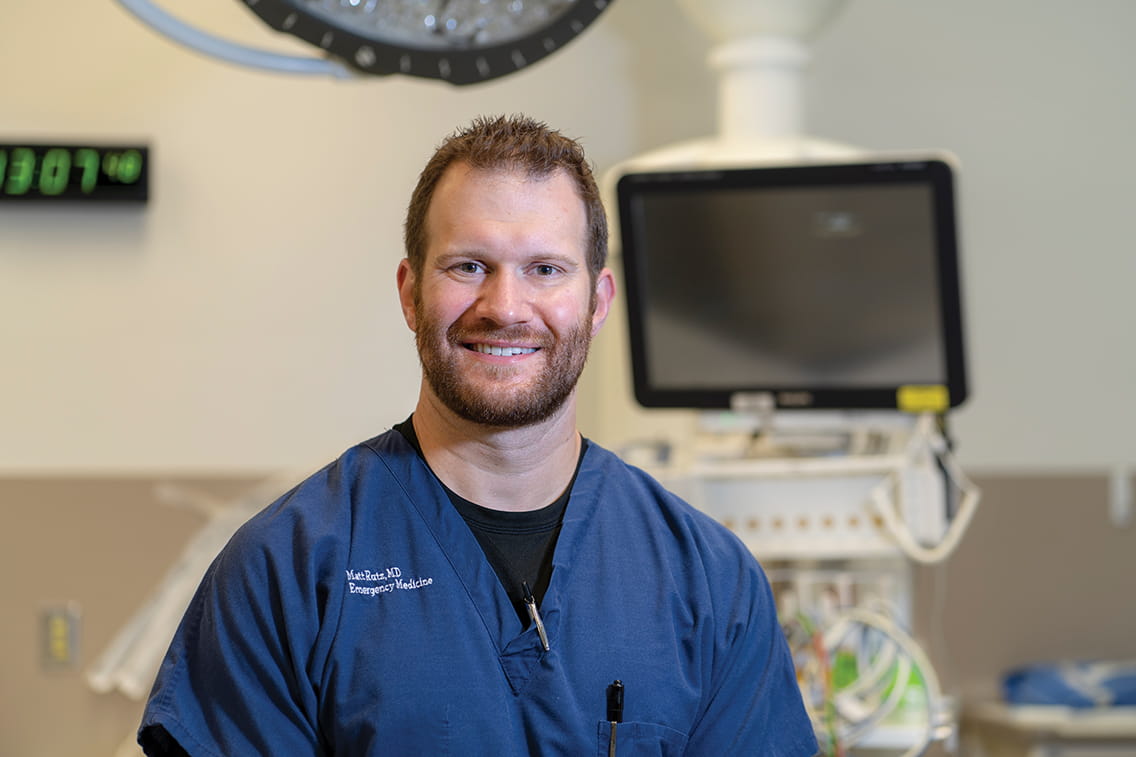How to Fight Isolation
Every person facing COVID-19—patients, families, and physicians—find themselves isolated to some degree. Shrinking the psychological distance is vital.

Matt Rutz, MD, is an assistant professor of Clinical Emergency Medicine at IU School of Medicine, and a physician in the emergency department at Sidney & Lois Eskenazi Hospital.
Matt Rutz Nov 10, 2020
ONE OF the greatest evils to come out of the COVID-19 pandemic is isolation. Isolation from loved ones. Isolation from information. Isolation from your daily routine.
Early in the pandemic, when we knew very little about COVID, the isolation patients felt from their loved ones was tormenting. When it became necessary to put patients on a ventilator, they would often ask to see their families—not knowing if they would see them again. To see tears streak down their faces before intubation was heart-wrenching. Thankfully, as more information about the disease has come to light, we have many more options for treatment before resorting to intubation.
One of the remarkable acts of kindness to come out of the pandemic is the outpouring of support combating the feelings of isolation. A prime example was the medical students from IU School of Medicine who were taken out of their classrooms and clinical rotations.
While they were no longer allowed in the learning environment, they organized and reached out to the various departments within the medical school to offer a hand. They picked up groceries, walked dogs, watched children of the physicians and clinicians still seeing patients. While they were eager to help, they were much happier when they were able to return to their clinical training, albeit with some restrictions due to COVID.
Physicians, too, broke out of their isolation, connecting early on with their colleagues to share stories and anecdotes on how to care for patients. Even before the data was available, we had a remarkable sense of what worked and what did not. That was due in part to this network. Now that research is being published rapidly, we need to turn to our experts to produce high-quality evidence. It is a pleasure to work alongside some of the top researchers in the world here at IU. I look forward to their findings.
In the meantime, we need to continue to battle the isolation by supporting one another. Simple gestures of calling a friend you have not heard from in a while, to giving a little extra if you can afford it, all help take away that feeling of isolation and bring our communities back together.